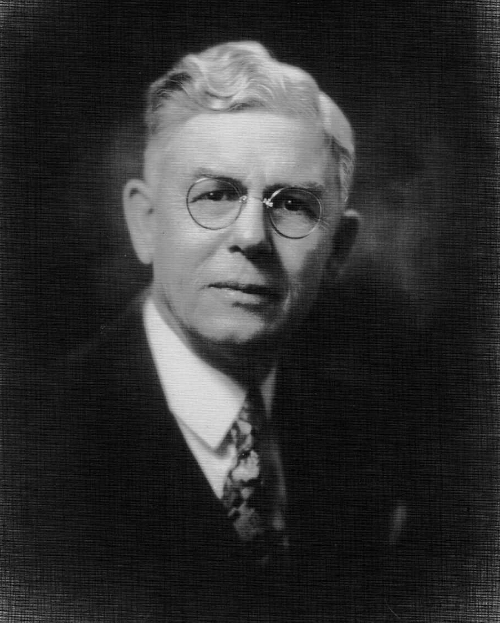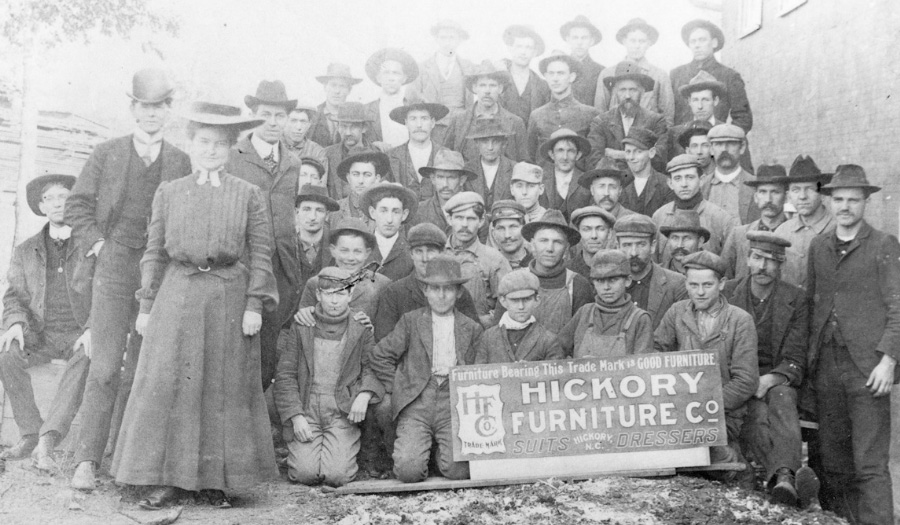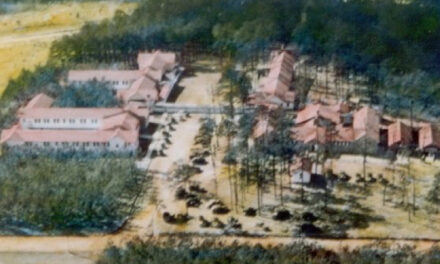

George Whiting Hall – the Father of Furniture in Hickory
Though there was much hoopla about Lenoir getting a furniture factory in 1889, the reality was that for over a decade, the town failed to do much with it. After a year of running the facility, J.M. Bernhardt left as president to pursue other interests, including building Blowing Rock’s Green Park Inn. The output was sporadic. Workers were laid off for months at a time. New management teams including two sets of brothers leased the factory but they could not make a go of the effort. It finally took Lenoir’s patriarch, George Washington Finley Harper and his son to take the reins and finally keep the operation running.
To the south in Hickory, a different origin story for furniture emerged. Just after the decade of turmoil in Lenoir was ending, a “big bang” in furniture-making occurred on Union Square. George Hall’s father and uncle ran a store that faced the railroad tracks. Looking out the front door at Hall Brothers, a mercantile store (they sold a bit of everything) George observed a string of rail cars carrying lumber. Some accounts say he only noticed when a collision sent the boards tumbling from the cars. Either way, the wood was headed east, to a main line that George believed was heading to the furniture capital of the United States, Grand Rapids, Michigan.

Hickory Furniture Company workers (photo courtesy of the Hickory Landmarks Society)
At this point George Hall had an epiphany. It was certainly possible that the same wood he saw leaving Hickory might come back one day as finished furniture. When it did, the price would increase tremendously for the same piece of wood because of the value added in a factory far away. Why couldn’t the raw material stay near the area from which it was harvested and the people of Hickory reap the reward. At that point, George Hall unknowingly became the “father of furniture” in Catawba County.
Gathering fellow investors, not in a public way like in Lenoir, Hall amassed enough capital to start the Hickory Furniture Company. On the northeast end of Hickory, just about where the city limited ended and the town of Highland began, a factory was built near the rail line. In 1901, a dozen years after Lenoir, a full 15 years after the Wilson factory in Morganton burnt down, Hickory joined the triumvirate of cities that would form the western end of North Carolina’s furniture industry.
It must have been a good idea. Less than a year later, another factory sharing the same side tracks as Hall’s enterprise opened its doors. From South Carolina, Thomas J. Martin created Martin Furniture. The two factories sought cooperation, not competition with one building bedroom furniture, the other furnishings for the dining room. With the earlier establishment of Piedmont Wagon, Hickory was firmly established as a woodworking town, with an industrial base that put it on the map for the rest of the century.
Once Hickory got into the business of furniture it was there to stay. More companies would come along. Some stayed, some went bankrupt, some consolidated, but for good or ill, the making of furniture would define Hickory, and all of it thanks to George Hall watching raw wood leaving on a train.








